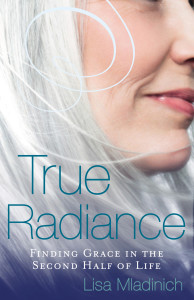True Radiance Blog Stop #8
Chapter Seven: Don’t Tempt Me! Three Common Pitfalls to Avoid
 My friend Lisa Mladinich asked me to be a part of her blog tour. And though I am intensely busy with my own book tour at the moment, I wholeheartedly want to help promote this treasure of a book. I am absolutely sure that Lisa’s lovely new book True Radiance will resonate with so many women and will deeply touch their hearts. Lisa is the “real deal.” She is such a lovely, sincere, and down-to-earth, faith-filled woman that I am so blessed to know. I hope that you will get to know Lisa a bit through her wonderful book.
My friend Lisa Mladinich asked me to be a part of her blog tour. And though I am intensely busy with my own book tour at the moment, I wholeheartedly want to help promote this treasure of a book. I am absolutely sure that Lisa’s lovely new book True Radiance will resonate with so many women and will deeply touch their hearts. Lisa is the “real deal.” She is such a lovely, sincere, and down-to-earth, faith-filled woman that I am so blessed to know. I hope that you will get to know Lisa a bit through her wonderful book.
I have endorsed True Radiance. My endorsement is here:
“We think about beauty more than we realize,” says author Lisa Mladinich who underscores women’s “hard wire” to recognize beauty. Through True Radiance women are invited in out of the cold of our youth obsessed culture to “steal” back our true God-given feminine beauty and encouraged to walk in love, through grace. Expressive anecdotes, caring sentiments, and the author’s insightful guidance are guaranteed to lift your spirits and even change your life!
~Donna-Marie Cooper O’Boyle, EWTN TV Host, speaker, and award winning author of twenty books, including: The Kiss of Jesus and Rooted in Love: Our Calling as Catholic Women www.donnacooperoboyle.com
Today, I’d like to share an interview with Lisa Mladinich, the author of True Radiance: Finding Grace in the Second Half of Life, a timely new book about how prayerful women increase in authentic feminine beauty as they mature spiritually.
Donna-Marie: Lisa, in Chapter Seven of True Radiance, you write about three common pitfalls for maturing women.
Lisa: Yes, I highlight the tendency to complain, the habit of comparing ourselves to others, and the psychological rut of obsessing about the loss of our youth. I offer some remedies for each.
Donna-Marie: I was particularly interested in the section called, “Complain, Complain, Complain,” which starts with these words:
I have a problem with complaining: I despise listening to it, and I hate catching myself doing it. I don’t know about you, but especially if I’m overtired or stressed, I’m vulnerable to negative thinking. At the first sign of disappointment, frustration, or unexpected changes of plan, out pop the whiny comments and criticisms, falling like acid rain on the people around me. When I’m feeling this way, I’m sorely tempted to the sins of gossip and ingratitude, as well, and I risk drawing others into sin, right along with me. (True Radiance, p. 96)
Lisa: I have to laugh because complaining is a big problem for me and for many women, especially as our lives get more complicated and our bodies and mental energies start to slow down. We’re pulled in ten thousand directions in the second half, and the stress levels can be overwhelming. When we’re overtired and overstressed, our tempers get shorter and we tend to vent all over everybody.
Donna-Marie: Our culture definitely encourages us to indulge our feelings. Why do you think complaining isn’t healthy.
Lisa: First, complaining is not all bad. It’s a natural impulse to want to throw off suffering by venting it verbally. Women are verbal creatures, which is why we’re natural evangelizers and nurturers. God uses our verbal gifts in many beautiful ways. And confiding our troubles to someone trustworthy can be healthy, as long as we’re not gossiping and leading others into sin. In fact, sometimes our complaints become motivators for taking action and solving problems. The context and the attitude are important.
But it’s very easy to become a chronic complainer and miss out on the many gifts that God offers us on any given day. We were not made adopted sisters of Christ just to waste our lives cataloguing and complaining about our own crosses.
In your fabulous, deep, beautiful new memoir, The Kiss of Jesus, you recount something that Mother Teresa said to you about suffering:
“Suffering is the sharing in the passion of Christ. Suffering is the kiss of Jesus, a sign that you have come so close to Jesus on the Cross that He can kiss you…. ”
Just a gorgeous quote, so full of meaning.
Donna-Marie: Thank you for your kind words about my memoir, Lisa. Yes, Mother Teresa taught me so much and I strive to pass the blessings on to others.
Lisa: I love the quality of hope in your memoir, because it shows that a life that has been dogged by danger, disappointment, and intense suffering can be seen, truthfully, in a beautiful light. Our sufferings joined to the cross of Christ can heal and sanctify our souls and those of others.
Donna-Marie: That is so true. It is a beautiful and profound mystery. You also point out that aging women suffer a great deal because of the many burdens we carry in the second half of our lives; but because of our growing spiritual maturity, we also experience the joy of deepening vocations and greater intimacy with God.
Lisa: Right! Jen Fitz blogged about that beautiful depth of connection in mature vocations, at her blog, this week.
This time of our lives, with all its necessary outpouring of concern, love, work, and prayer is deeply meaningful and part of God’s beautiful plan of salvation. Think of all the lives we touch on any given day, if we embrace the people who come to us–our children and grandchildren, aging parents, friends, neighbors, colleagues–and share our time and energy with a willing heart. Like Our Lord, whose beauty and power are hidden in the Eucharist under the guise of a small circle of bread, the value of our service may be invisible to the world. But God blesses our efforts and makes them bear fruit in beautiful ways: in this life and in the life to come.
Donna-Marie: So what do you recommend for women who would like to break the habit of complaining?
Lisa: Principally, to count their blessings, religiously, and commit to following Jesus wholeheartedly. Both are simple to say, harder to do. But with God, all things are possible!
Our Lord made it clear that following him involves two steps. He urges us in Scripture (Matthew 16:24) to first, deny ourselves and second, take up our crosses. This two-fold command is packed with insight, because when we learn self-denial–even in little things (for instance eating a little less, getting right up at the sound of the alarm, or withholding a snarky comment), we are greatly strengthened in the spiritual life and better able to take up our crosses with a willing spirit.
And we shouldn’t gloss over his call for us to practice self-denial. When women are stressed, we tend to neglect ourselves–even while being a little self-indulgent. You know what I mean: overeating because we’re exhausted from taking care of everyone but ourselves, or complaining rather than asking for help. But practicing self denial in little things weeds out the wimpiness in our character, as it increases our self-control–which fuels our growth in holiness.
As we draw closer to the suffering Jesus, we grow stronger in the virtues of patience, faith, and perseverance, which leads to greater wisdom. The spiritual fruits of embracing the cross can be truly spectacular.
And cultivating gratitude sensitizes us to beauty and helps us to see more of the countless ways that God is speaking to us through the beauty of our own lives. When we appreciate these hints of heaven for the gifts they really are, it’s like gazing into the eyes of God. And when we do that, he gazes back. And then the graces really flow.
Donna-Marie: Thank you very much, Lisa. Your book is a treasure! I am so glad that you have written it. May it help countless souls!

Lisa Mladinich is a Catholic wife and mom, the founder of AmazingCatechists.com, and an author and speaker whose dynamic presentations on faith, catechetics, and women’s issues can be heard at events around the country.
True Radiance: Finding Grace in the Second Half of Life can be purchased here.
The rest of Lisa’s updated Blog Tour links can be found here.






Thanks for your review of this book. As you know, I am struggling with many crosses in my life at this time. The section on complaining really intrigued me. I feel sometimes my complaining blocks out my remembering my joys and blessings. As a middle-aged woman with school-aged children, I feel I can learn much from this book. Thanks again for leading me to this book and several others lately!!
You will love this book, Toni. Lisa does a wonderful job speaking about this topic. God bless you! You are in my prayers. xo